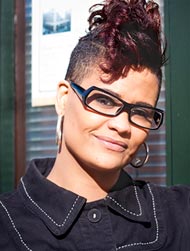One of the most significant problems we face today is the lack of care for Oregonians living with mental illness and addiction. Only a third of children who need mental health care receive it and less than 50 percent of adults. We see that play out in our communities with homelessness, poverty and despair. The human and financial costs are staggering.
Creating a system through which individuals can get mental health and addiction treatment in coordination with the other types of care and services that ensure recovery is one of the most important opportunities before us as we work to make our health care system more patient-centered and effective. In local communities around the state, people are working together to do just that.
In Portland, Central City Concern serves some 13,000 highly vulnerable low-income homeless persons every year. They take an innovative approach that provides both support and accountability.
Their patient-centered approach coordinates addiction and mental health care with primary care, housing and employment services. Counselors, doctors, nurses, peer case managers, housing case managers and others work in teams to design the best strategies for the population they serve. This is markedly different than simply dealing with a patient only during an office visit. It means that there is a team of dedicated people ensuring that patients have housing, medication, and all service supports they need. This, too, reduces emergency room use, improves health and lowers public costs. Most importantly, it improves and saves lives.
One thing learned over the years is that simply providing medical treatment is not enough. People with mental illness or addiction are much more successful when they have a place to live, have a job, and are assisted by other people who are going through treatment or recovery.

Mary Lindsey: Coordinated care gave her the skills to succeed.
Mary Lindsey, for example, had a drug addiction for decades, starting from the time she was 16 years old. During that time she says she became familiar with the local emergency room -- once when she was stabbed, once when she was shot, and once when she was stabbed again. She survived all that and eventually found her way to Hooper Detox. Today she is 37 and more than two years sober. She said without the kind of wraparound services at Central City Concern, she would have started using again.
"I needed everything when I got clean. Everything I needed as far as learning how to live life -- I didn't know how to cook a square meal. I didn't know how to go to work. I didn't know how to be social with people -- I didn't know how to talk to people," she says.
She says the services she received helped her learn those basic life skills. She also reports that she has not been to the emergency room once since then.
These stories are important because they show us what is possible in Oregon, and that really important work is already being done. Work we can build on and expand. Today programs are frankly limited in what they can do because of an anachronistic Medicaid, Medicare and health system payment model that funds only office visits. That means at Central City Concern, even though they have developed innovative approaches that we know improve health and lower costs, they could be doing even more if they had the flexibility to truly fund patient-centered care.
As we work to transform our health care system for better health, better care, and lower costs, we need to do all we can to support a new and better way of thinking and be willing to let go of the old ways of business that no longer serve us -- or our clients. |
